Repotting Ginkgo biloba seedlings
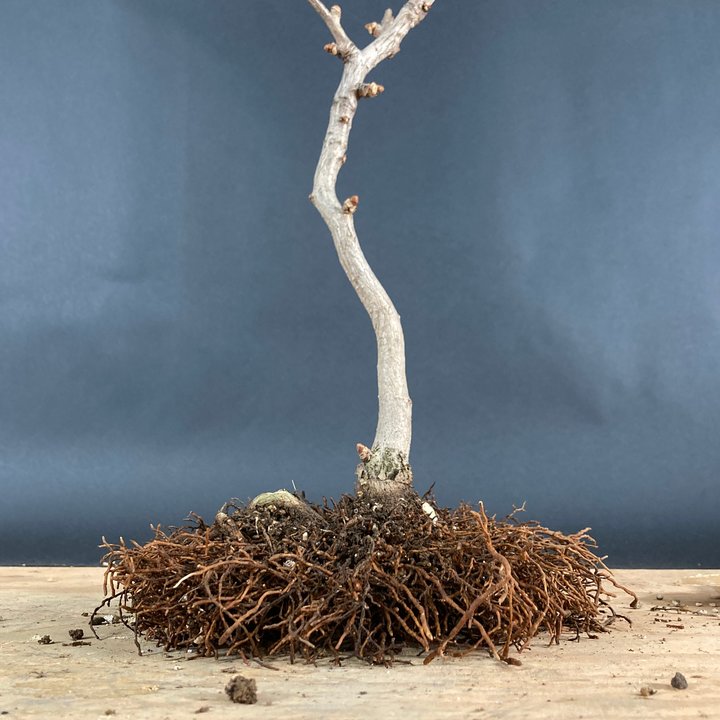
I started those Ginkgo biloba seedlings about 4 years ago. After only two years the pot is root-bound and I had to repot. ...

I started those Ginkgo biloba seedlings about 4 years ago. After only two years the pot is root-bound and I had to repot. ...
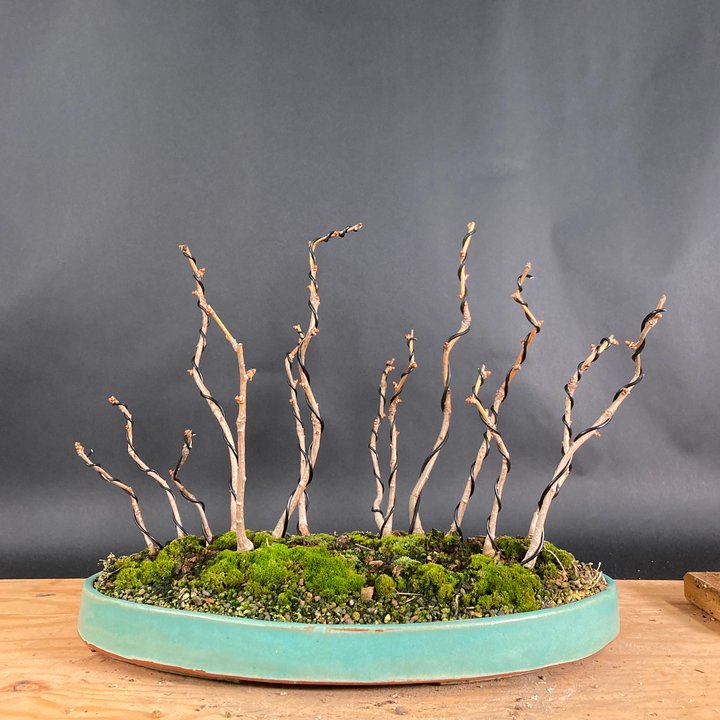
This Ginkgo biloba group planting was created in 2021. Last spring I removed all terminal buds thinking that the axillary buds would grow lateral shoots. Instead, all trees remained static and only produced leaves swirls last year. Let’s see if this year they will finally grow lateral shoots. ...
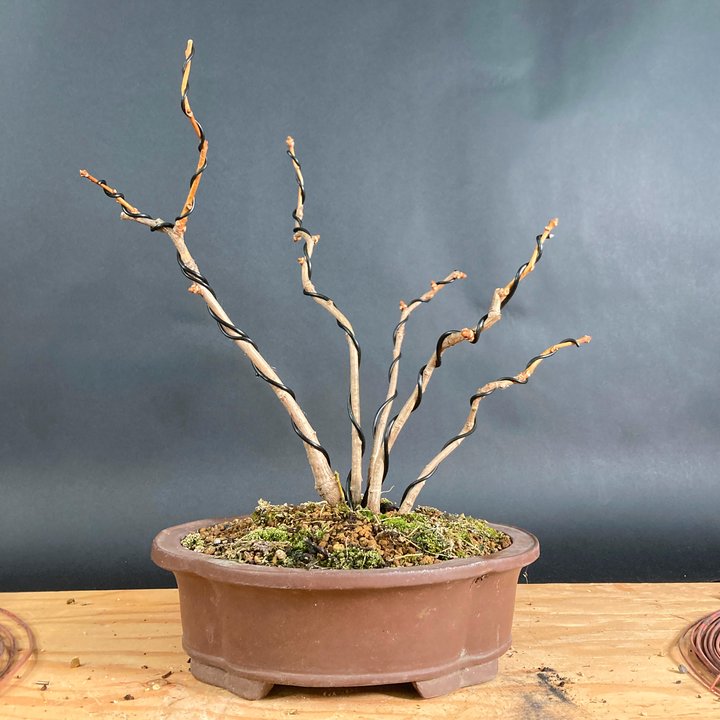
Ginkgo biloba group plantings started from seeds three years ago. This species takes time to ramify. ...
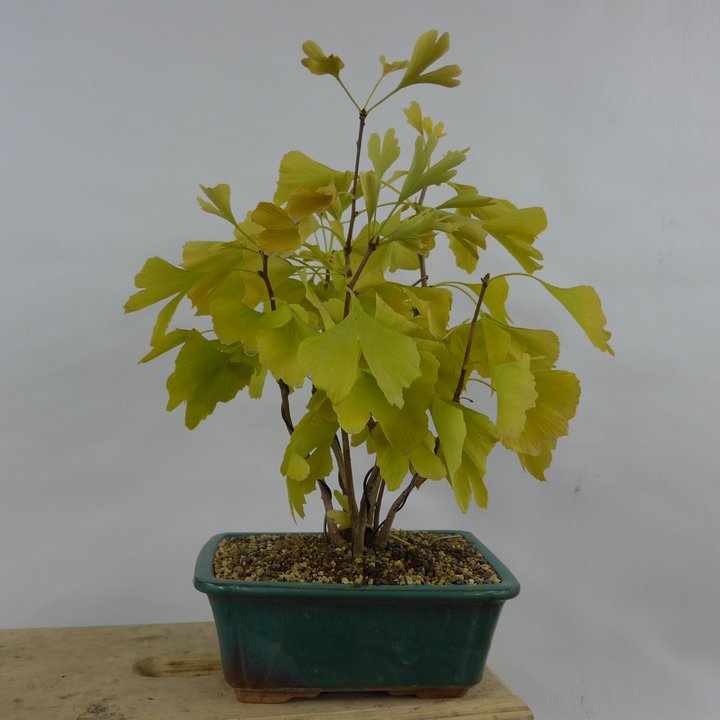
Defoliating and wiring young Ginkgo biloba group planting. ...
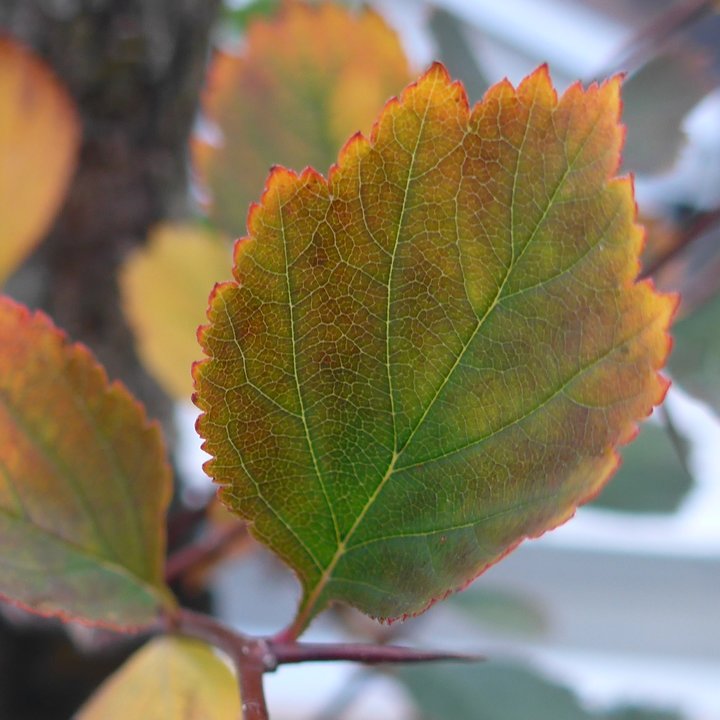
In fall the leaves are scorched by the sun, eaten by the insects and thorn by the wind. Their days are counted. Slowly the green pigments are overthrown by the red (anthocyans), orange (carotenoids) and yellow (xanthophyll) pigments. The tree is pumping its sugars and nutrients from the leaves using the osmosis mechanism. The anthocyans bring frost protection and enlighten our nordic species. In the coming days the tree will store the sugars in the soil and the starches in the living wood. Cellular death will reach the heart of the leaves and the stalk will soon be completely obstructed by a cork tissue. From this point the leaves will fall, leaving a separation mark on the branch. The leaves are sacrified for the promess of a new season. ...
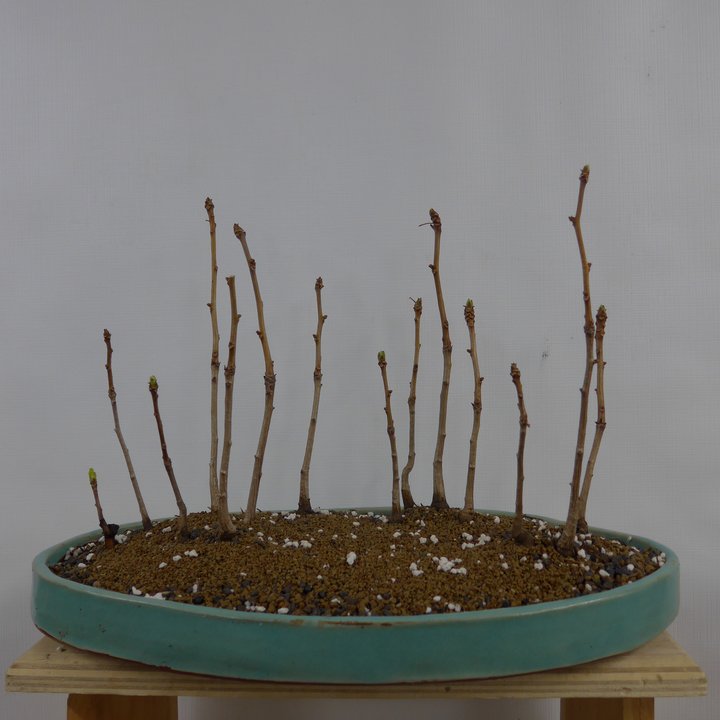
I did not know what to do with those 20 Ginkgo biloba seedlings, so I decided to create two prehistoric forests. The buds are about to open. The timing is ideal to repot. I remove the soil and trim the roots to establish a flat root base. Here is a first forest containing 14 trees. Here is a second forest containing 5 trees. ...
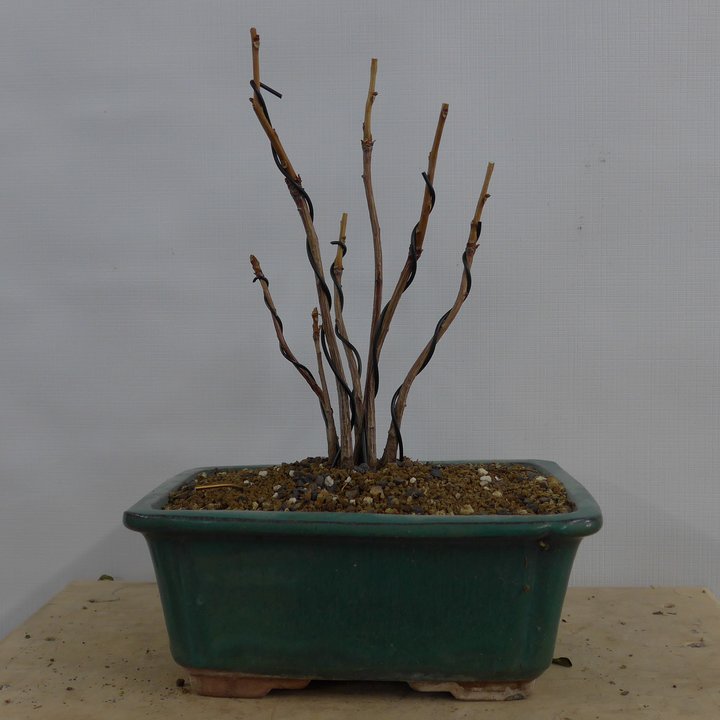
These now 2-years-old ginkgo bilobas were planted together in 2020. Their trunks are now fusing together and I wired them to illustrate the typical flame shape that characterize the old ginkgos. Here are three pairs of before-after shots. ...
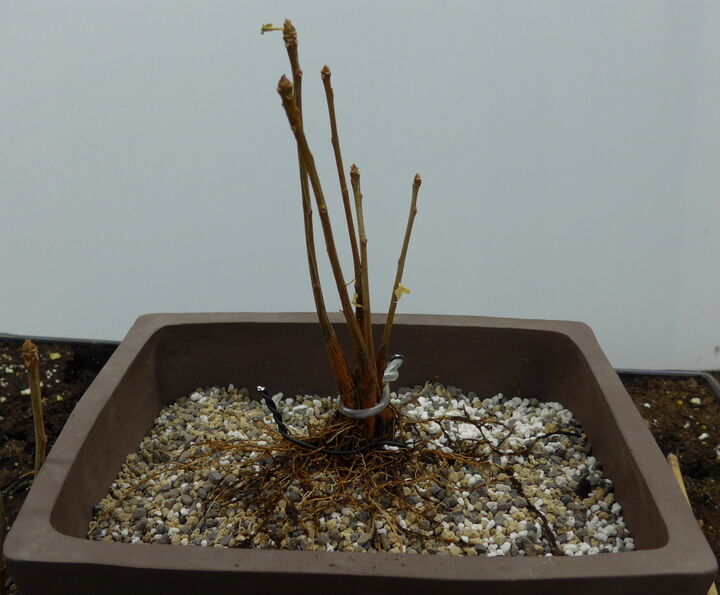
Those one year-old Ginkgo biloba seedlings are good candidates for a group planting or Kabudachi. The seedlings are separated in small groups. The new forests are planted in chabasai and will grow untouched for two years until their trunks fuse together. ...